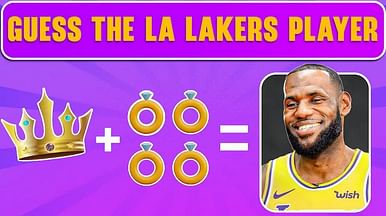GAO, Mali (AFP) –
Fatoumata, 16, plays basketball at the former “Sharia Square” in central Gao, on February 26, 2013. Since the departure of the Islamists, who occupied the city for nine months, following the arrival of the French and Malian forces, the central square of Gao is once again called “Independence square.”
As night falls on “Sharia Square” in Gao in northern Mali, a score of youths are practising on a basketball court, closely watched by their coach. Now that armed extremists have left, several girls in shiny tracksuit bottoms and low-necked tops have joined the boys.
Oumar Tonko Cisse, a retired coach in his 60s, is the founder of the Centre for Training and Promoting Sports (CFPS) in Gao. He is also president of the centre and its trainer, he says with a laugh.
This tall man, wearing a jacket and a woollen hat, welcomes his “kids” with a broad smile and a cigarette in hand on the porch that opens on to the central pitch. The sign reading “Sharia Square” has still not been removed since it was put up by an armed movement that applied strict Islamic law.
Nevertheless, since the departure of the Islamists who occupied the town for nine months in 2012 before the arrival of French and Malian troops, Gao’s central square has been given back its old name, “Independence Square”.
Local youngsters are seen playing basketball at the former “Sharia Square” in central Gao, on February 26, 2013. Since the departure of the Islamists, who occupied the city for nine months, following the arrival of the French and Malian forces, the central square of Gao is once again called “Independence square.”
During the months of Islamist occupation, the CFPS, set up in 2004, was able to pursue its activities, “even competitions”, Cisse says.
But there were no cigarettes for him, on pain of being whipped, and play above all took place “without the girls”.
“As soon as they were gone, we resumed activities as before,” Cisse says. “Of course, there are a lot fewer young people. Many girls fled the region.”
His face suddenly hardening, Cisse tells how “one day, a group of girls was taken by members of MUJAO (the Movement for Oneness and Jihad in West Africa). They were beaten. Some gave up and hid at home, others urged their parents to leave for the south and never came back here.”
“It was everyone for themselves… It’s tough, the girls here suffered a lot,” he added.
Basketball coach Oumar Tonko Cisse, 60, pictured during a training session with local youngsters at the former “Sharia Square” in central Gao, on February 26, 2013. Since the departure of the Islamists, who occupied the city for nine months, following the arrival of the French and Malian forces, the central square of Gao is once again called “Independence square.”
“They are still traumatised. You see?” He points out groups of young girls on the edges of the square. “They are still wearing veils. Before, some women were veiled, but not all of them. It’s become traumatic.”
Awa, a tall and pretty 15-year-old from the Peul ethnic group, discovered basketball two years ago. Like many women and girls, she has difficulty speaking in French.
“She says that she came to basketball because she admired some girl players,” Cisse translates, “and her height gives her an advantage.”
“Under MUJAO, we couldn’t play any more, we couldn’t go to school any more, so I stayed at home, I did housework and prepared food for the family,” Awa says.
“Before, we signed people up (for the centre) by the book. Now, we don’t ask for anything. All that we want is to succeed in reaching out to young people and bringing them back.”
The football group used to include 26 players, all boys. But basketball drew in 20 girls for 30 boys. “In some categories, the little ones and juniors, the girls were more numerous than the boys,” Cisse said.
For the past month, Awa has turned up in the square every day. “I hurry after school closes,” she laughs. The young girl says she is happy to be able to play again, even though she does “not have (her) friends any more”.
“Unfortunately, those who played the best have gone to the south. They have found clubs which have taken them in,” Cisse sighs. “We did all the work here, we sowed the seeds, and it’s them, down in the south, who reap the harvest.”

Guess the Lakers players!
